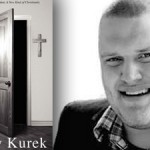Something I’m finding frustrating about the church right now is that it doesn’t allow for change… neither institutional or personal. But that is always the problem with change. For instance: the church might talk about change, but doesn’t admit the impossibility of doing it. I might talk about personal change, but won’t recognize the impossibility of doing it.
That’s the problem with change: who is the changer, and who is the changed? When I say to myself: I’m going to change myself! I have to recognize how impossible a statement that is. Who is the “self” that I say I’m going to change? And who is the “I” that says he is going to change the self? They are, indeed, one and the same. Which leads me to conclude that in the end what we are masters at is modification, not true change or transformation.
I have lots of friends who’ve left the church because when change has come upon them, they feel they no longer fit. Even though the church preaches change, it really doesn’t allow for it. Because the first step to change is death, death to the self. Which means doubts and questions. And the church, as we all know, is extremely uncomfortable with doubts and questions. So vamoose! They’re gone. If only they’d renovated themselves, for the church loves modification because the person most often modifies to compromise to expectations and values of the church.
Even though we might not agree completely with James W. Fowler’s Stages of Faith, let’s take a look at one of his attempts to describe Stage 5 level of faith:
Stage 5 accepts as axiomatic that truth is more multidimensional and organically interdependent that most theories or accounts of truth can grasp. Religiously, it knows that the symbols, stories, doctrines and liturgies offered by its own traditions are inevitably partial, limited to a particular people’s experience of God and incomplete. Stage 5 also sees, however, that the relativity of religious traditions that matters is not their relativity to each other, but their relativity– their relate-ivity– to the reality to which they mediate relation. Conjunctive faith, therefore, is ready for significant encounters with others traditions than its own, expecting that truth has disclosed itself in those traditions in ways that may complement or correct its own.
How can someone, say, develop from Stage 2 to 3, or 3 to 4, or 4 to 5, in an evangelical, conservative, or fundamentalist church? It is nearly impossible! I have lots of friends who have come to some kind of a perception of the previous quote, and the church is unable or unwilling to provide a safe place for such people. They feel like they no longer belong and must move on. Some even understand themselves as backsliders and they have no choice but to live out their own curse with integrity. That’s been my observation anyway.











